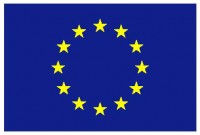 The European Commission will fund ResCoM, which will look at “transforming waste into high value resource[s] through closed-loop product systems”, including remanufacturing.
The European Commission will fund ResCoM, which will look at “transforming waste into high value resource[s] through closed-loop product systems”, including remanufacturing.
The European Commission approved funding for a series of research projects looking at resource efficiency, and one of the 14, ResCoM (Resource Conservative Manufacturing) will study circular economies and closed-loop production systems for products, including remanufacturing.
The project’s brief is that “in a world with growing pressures on resources and the environment, the EU has no choice but to go for the transition to a resource-efficient and ultimately regenerative circular economy”. Among the pilot operations taking place under the coordination of project leader Kungliga Tekniska Hoegskolan will be “demonstrate[ing] how the collecting, remanufacturing and upcycling of discarded products into new added-value products will be cost-effective, resource-efficient and more sustainable than the current linear manufacturing systems”.
The software to be utilised by ResCoM will support these pilot operations, and will consist of a “closed-loop product lifecycle management module coupled with a materials information module”.
The projects focus on different areas including reusing discarded car tyres, recovering elements from batteries, and producing green fertiliser from animal waste, with €40 million ($54.1 million) given to the 14 projects. ResCoM, aimed at “transforming waste into high value resource[s] through closed-loop product systems”, has been given €4.37 million ($5.9 million) to “develop an innovative framework and a collaborative software platform for the industrial implementation of closed-loop manufacturing systems”.
The research projects are said by the Commission to look at how to “shape a more resource-efficient economy in Europe”, with collaboration between over 140 research organisations and private companies across 19 EU nations aiming to “tackle the challenges of recycling waste materials from manufactured products” to “improve the quality of the environment and save money”.
The projects will officially begin next Tuesday and Wednesday in Brussels, where project coordinators will meet EC officials to “set the priorities and coordinate the work ahead”.
